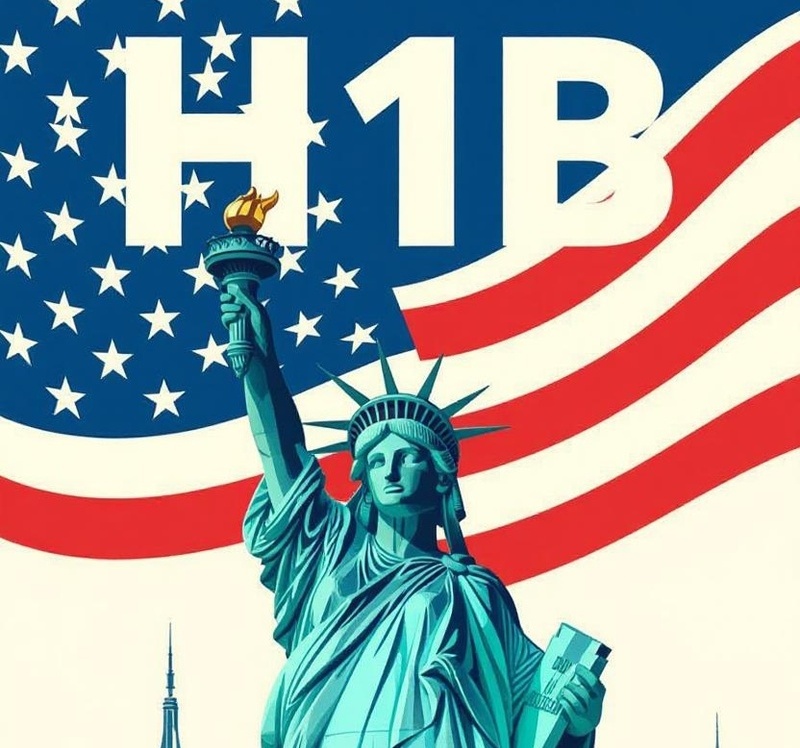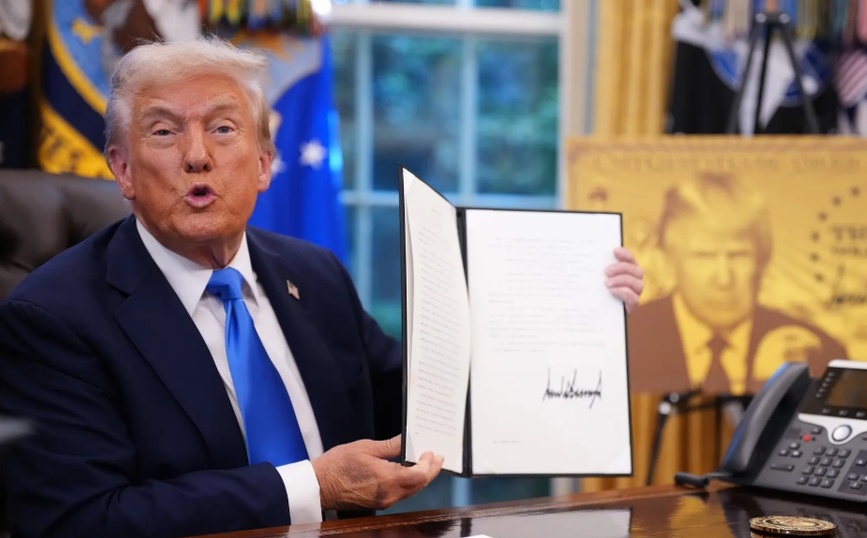SAEDNEWS: The US clarified that the new $100,000 H-1B visa fee applies only to new petitions, not existing holders, easing fears among tech workers and companies amid confusion over the policy.

The United States has issued an important clarification regarding its newly announced $100,000 H-1B visa fee, confirming that it will only apply to new petitions and will not impact current visa holders.
The announcement comes a day after US Secretary of Commerce Howard Lutnick suggested the fee would be charged annually and apply to both renewals and new visas. His comments sparked immediate concern among major tech companies, including Amazon, Microsoft, Meta, and Alphabet, which warned employees with H-1B visas to remain in the US or return quickly.
Karoline Leavitt, White House press secretary, clarified that the fee is one-time per petition, not annual, and that existing visa holders would not be charged if traveling to or from the US.
“This is NOT an annual fee. It’s a one-time fee that applies only to the petition,” Leavitt explained.
She added, “Those who already hold H-1B visas and are currently outside of the country will NOT be charged $100,000 to re-enter. This applies only to new visas, not renewals, and not current visa holders.”
The executive order imposing the fee, signed by President Donald Trump, is set to take effect at 12:01am on Sunday (04:01 GMT) and will last for one year, with a possible extension if deemed in the US interest.

H-1B visas allow companies to sponsor skilled foreign workers—including scientists, engineers, and computer programmers—to work in the US for three years initially, extendable to six. The visas are distributed via a lottery system, with Indian nationals making up nearly 75% of holders.
Critics argue that the program undercuts American workers by bringing in foreign employees willing to work for salaries as low as $60,000, far below the $100,000+ typical for US tech workers.
India’s Ministry of External Affairs said the plan is under review and warned it may have humanitarian impacts on families, urging US authorities to address disruptions carefully.
The US Chamber of Commerce also voiced concern, citing potential effects on employees, their families, and American employers, and is collaborating with the administration to understand implications and find solutions.
The initial confusion over the fee led many H-1B visa holders abroad to rush back to the US, sometimes hours after landing elsewhere, fearing they would face the $100,000 charge.
Allen Orr, immigration lawyer and chair of the National Bar Association, told Al Jazeera that the order caused mass confusion, with some workers forced to cancel flights and housing arrangements, delaying start dates and costing money.
Orr added that the fee could potentially drive talent away from the US, with jobs going overseas if the $100,000 cost applies to future H-1B applicants.
Tech companies heavily rely on H-1B workers for critical roles. Confusion over the fee sparked panic among employees and industry leaders, raising concerns about the US’s ability to attract global talent.
“The American secret is that we’ve taken talent from around the world, and stopped letting it in would hurt the country’s global brand,” Orr noted.
The clarification from the White House provides some relief, but the order has already highlighted the delicate balance between immigration policy, labor markets, and America’s competitive edge in technology.

